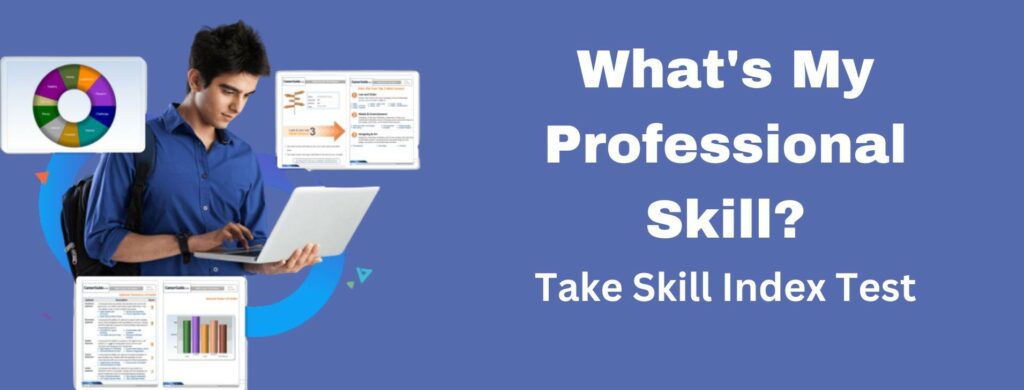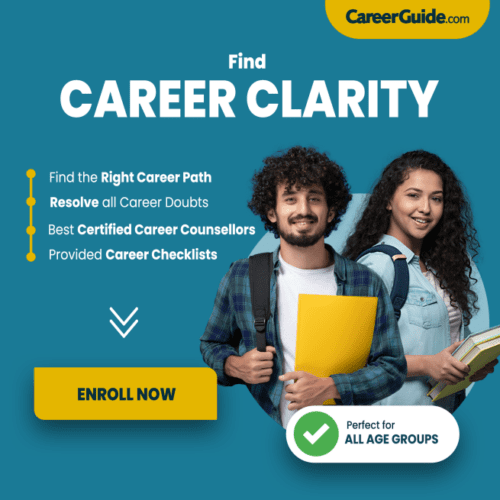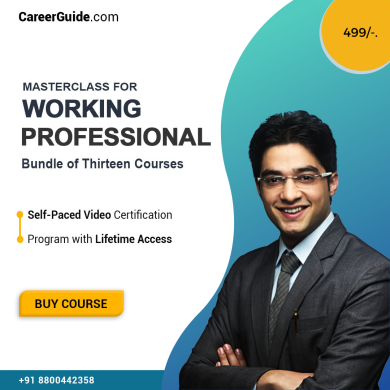With each job interview, you meet new people; you brand yourself and sell yourself. To survive through the process, you need to display your skills and stay upbeat and enthusiastic through it all. So it is very important to prepare beforehand and present yourself better so here are some tips that would help you to crack an interview. Here is an article on How To Crack An Interview.
- Know About The Institution
- Prepare Resume According To The Course Applied For
- Research About Possible/Actual Interviewers
- Reach 15 To 30 Minutes Before Your Interview
- Prepare A Paragraph Describing You
- Make A List Of Achievements, Skills, Strengths, And Areas Of Improvement
- Practice
- Body Language
- Workplace Communication Masterclass
- Career Clarity Service
- FAQS about How to Crack an Interview
Before the interview, make sure you research the company thoroughly. This will help you understand their mission, values, and culture, and will allow you to tailor your responses to their needs.Know More Details on Services For Working Professionals.
Know About The Institution
Before the interview it is important to know about the company and job requirements it will help you to prepare better. You should have the willingness to read meticulously about the company their website background, their competitors, the professionals, managers their social media accounts. By doing so you will be able to answer them confidently and the company would know that you have the enthusiasm to work with them. It is very vital to know about their history vision and business objectives.
Prepare Resume According To The Course Applied For
It is important to update your resume according to the job profile you have applied for include all skills that you possess for the position you have applied for example if you are applying for a position of a journalist mention some classes that you took on mass communication. Include extracurricular, volunteering work, academic achievements, and projects. Look to the job description to help you understand what the employer is looking for.
Research About Possible/Actual Interviewers
A little familiarity helps a lot if you know who will be taking your interview it is always a good decision to read about them and know them better. Look them up on LinkedIn. It is always better to be acquainted. This will help you to build a bond and rapport. Know more details on career clarity services.
Reach 15 To 30 Minutes Before Your Interview
Reaching early would give you time to get comfortable and familiar. Punctuality is the best skill to have, as it shows that you have a sense of professionalism. Being on time shows that you are responsible and you value others’ time. It also shows your work ethic. It makes a positive impact and helps you advance professionally.
Prepare A Paragraph Describing You
Preparing a paragraph describing yourself will help you to highlight specific experiences and attributes that will help you to best fit in the role. You won’t have to think much and you will have all your characteristics and qualities aligned with each other. Words are very powerful so it is very necessary to prepare and choose words to describe you before going in for an interview.
Make A List Of Achievements, Skills, Strengths, And Areas Of Improvement
Hiring managers always hold a particular interest in the skill set you possess this means it is very important to highlight relevant skills and illustrate them which you truly possess. It is very important to be self-aware of what your strengths are and where you need improvement. Stick to specific examples or tasks regarding the accomplishments.
Practice
It is always advisable to practice before an interview. This ensures are not talking too much and you are not taking too much time at the interview itself. Always be direct in your answers and do not beat around the bush. Know More Details On Career & Job Switch Guidance.
Body Language
63% of the impression you make is non-verbal. Be confident, polite, and professional. Your best behavior is judged right the minute you reach the office. Body language plays an important role in making or breaking your career. The way you present yourself leaves a significant impact on the interviewer.
In conclusion,dress appropriately has a nice and positive attitude, keep your phone silent and prepare a list of questions. Remember the interview is all about you and how you represent yourself. We are very sure you will able to crack the interview.
Workplace communication Masterclass is a crucial skill to develop, as it can significantly impact their success in their future careers. In today’s fast-paced and increasingly competitive job market, effective communication skills can set a candidate apart from others and can make the difference between securing a job or missing out on an opportunity.
Good communication is essential for building strong relationships within a workplace.This includes relationships with co-workers, managers, clients, and customers. Effective communication helps to establish trust, respect, and understanding between people, which can improve overall work performance and productivity. By developing this skill, college students can improve their ability to work effectively with others and collaborate in team settings.
CAREER CLARITY SERVICE
If you feel stuck in your current positions, or if you are in-between roles and unsure of what you want to do next. Then you need career clarity service. CareerGuide brings Career Clarity Service for Working Professionals to overcome wide variety of work-related challenges. You’ll have better career clarity than most people if you actually understand what makes you tick and what your mission in life is. You will have a better understanding of what you need to do to pursue those careers in the future after a career session with a certified career counselor.
FAQS About How to Crack an Interview
Q. How important is confidence during an interview?
A. Confidence plays a significant role in an interview. It helps you make a positive impression and demonstrates that you believe in your abilities. Confidence allows you to articulate your thoughts clearly, maintain good eye contact, and engage actively with the interviewer.
Q. How should I handle difficult interview questions?
A. Difficult interview questions can catch you off guard, but it’s essential to stay calm and composed. Take a moment to gather your thoughts before responding. If you don’t know the answer to a specific question, be honest about it and express your willingness to learn.
Q. Is it necessary to send a follow-up email after an interview?
A. Sending a follow-up email or thank-you note after an interview is highly recommended. It allows you to express your gratitude for the opportunity, reiterate your interest in the position, and keep your name fresh in the interviewer’s mind.



















